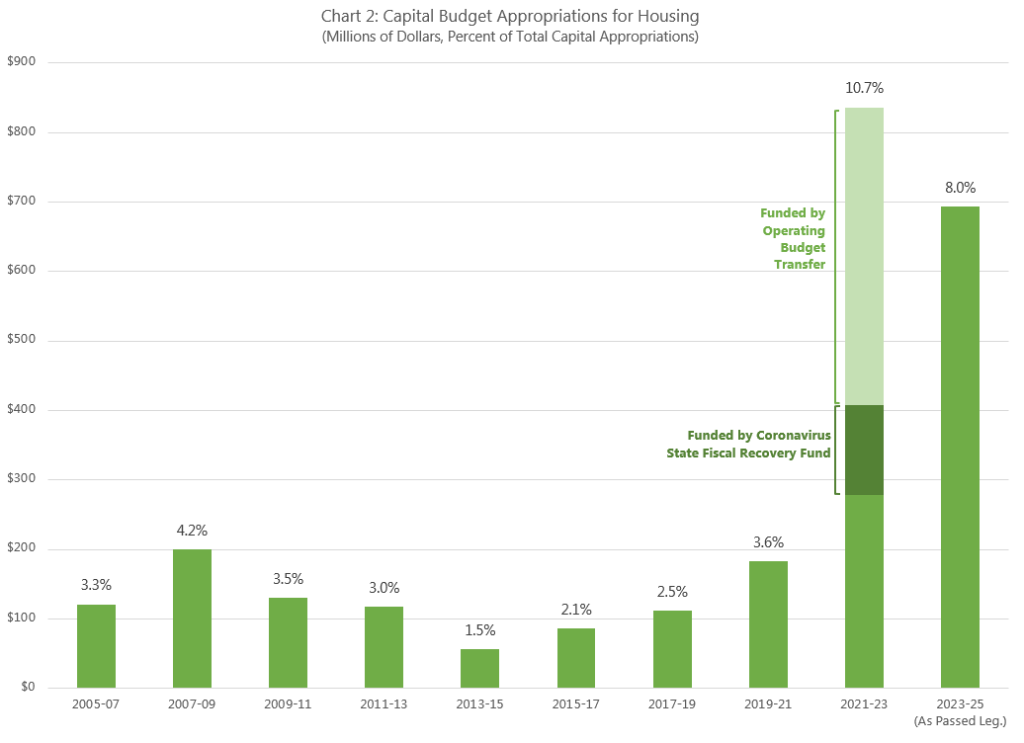12:03 pm
May 16, 2023
Last week Gov. Inslee signed several housing policy bills. The Seattle Times reports, “Washington will now allow multifamily housing in many more neighborhoods, encourage people to develop accessory dwelling units, and streamline development regulations, among other policies. The overarching effort to smooth regulatory barriers, like zoning and permits, to building housing garnered bipartisan support.”
The Legislature did not move Gov. Inslee’s proposal for a bond referendum to fund housing, but housing is a focal point in the operating and capital budgets (as passed by the Legislature).
Increased compensation and provider rates are the core of the operating budget this year; they make up 42.9% of new policy appropriations from funds subject to the outlook (NGFO). The next largest subject areas (not including full agencies) are special education (7.4% of new NGFO policies) and housing (4.8% of new NGFO policies).
Within the Department of Commerce, I count $224.6 million from the NGFO for new operating housing and homelessness appropriations ($292.9 million from all funds). (There’s also $45.6 million to increase contracts for homeless services providers, but I include that in compensation, not housing and homelessness.) These operating appropriations include:
- $60.0 million (NGFO) for encampment response and outreach.
- $55.5 million (NGFO) plus $55.5 million (federal pandemic relief) for emergency housing and shelter capacity.
- $26.5 million (NGFO) for the housing and essential needs program.
- $25.0 million (NGFO) for permanent supportive housing operations and maintenance.
The $224.6 million is the largest amount of new NGFO policy spending on housing in a budget, looking back over the past several budgets (see Chart 1). New policy appropriations from all funds were much higher in the original 2021–23 budget, due to federal pandemic relief funds. (Note that Chart 1 does not include ongoing spending on housing programs that occurs at the maintenance level.)

Similarly, the capital budget includes an unusually large amount for housing—about $693.7 million in 2023–25. There were more capital appropriations for housing in 2021–23, but only because of an extraordinary transfer of funds from the operating budget and use of federal pandemic relief money. (See Chart 2.)
The 2023–25 capital funding for housing includes:
- $400.0 million for the housing trust fund.
- $83.2 million for home efficiency rebates.
- $60.0 million for the connecting housing to infrastructure program.
- $50.0 million for transit-oriented housing development.
- $40.0 million for the Housing Finance Commission land acquisition program.
Finally, the operating budget establishes a new housing supply and affordability task force, which will identify strategies to increase the supply of affordable housing, reforms to land use and zoning laws to increase housing, strategies to address government requirements that increase housing costs or suppress supply, and ways to increase the construction workforce. An interim report is due Nov. 1, 2023, and a final report is due Dec. 1, 2024.

Tags: 2023-25
